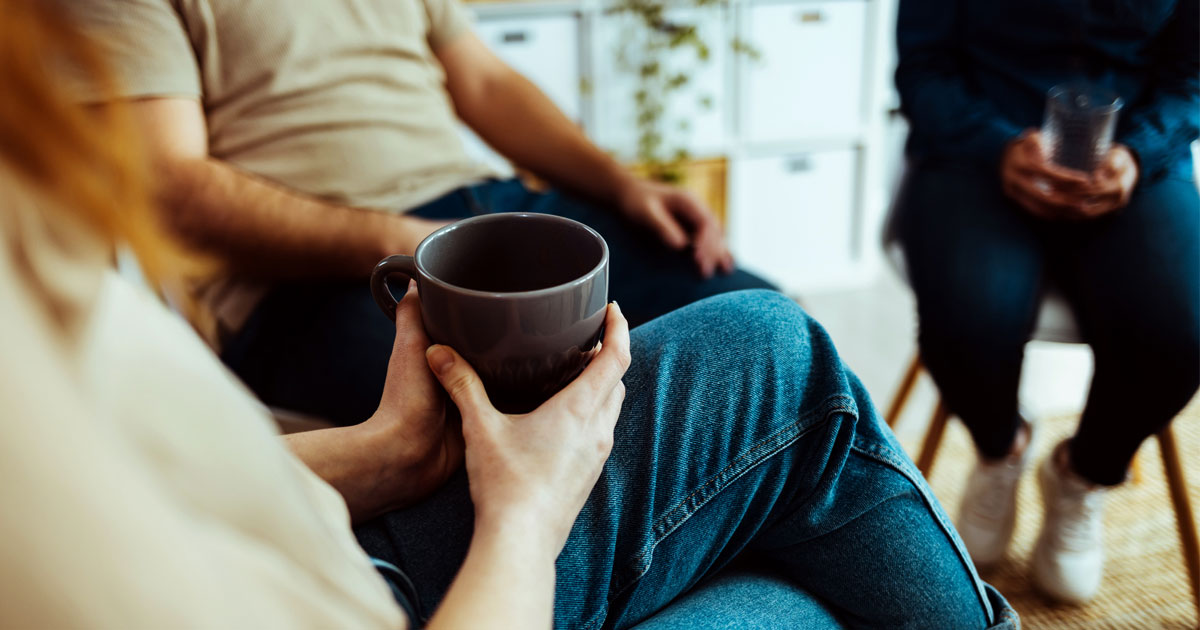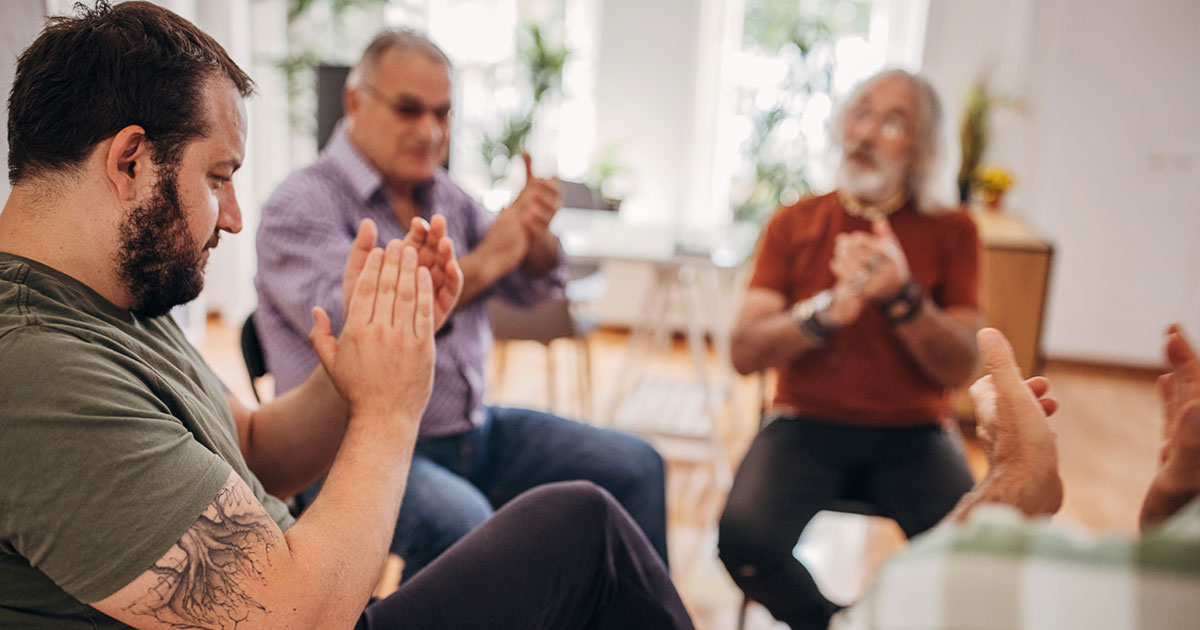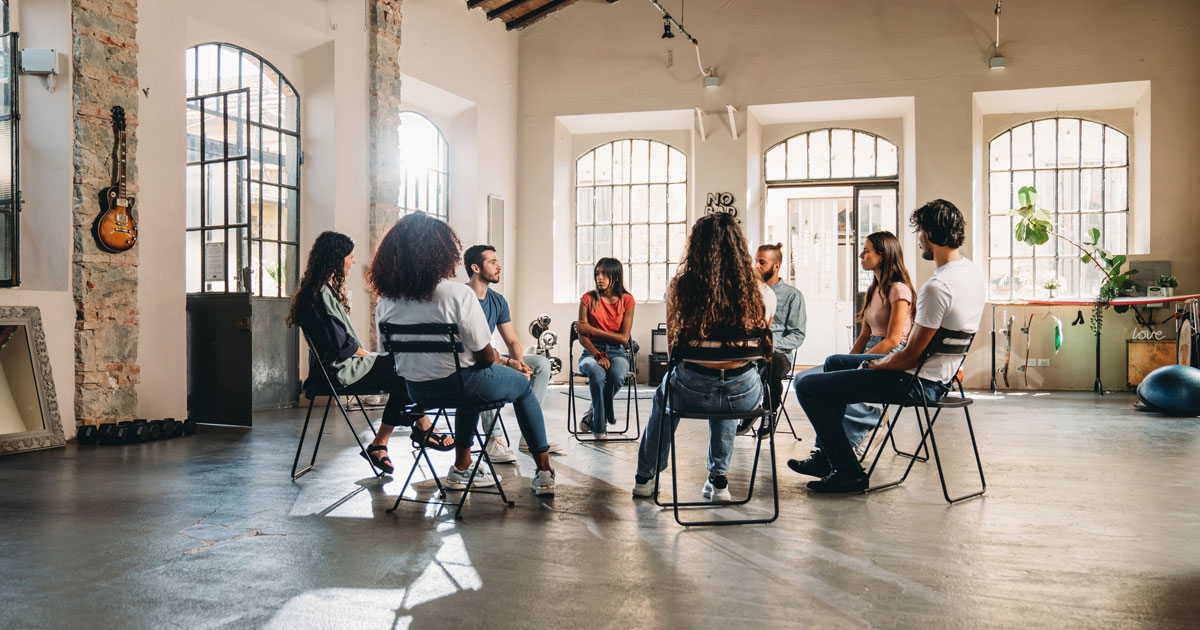You may not have considered how a community helps with addiction recovery, but I’d like to discuss several ways that a community can make a difference. It’s common for those recovering from substance use disorder (SUD) to feel isolated from the rest of the world. However, you don’t have to navigate this journey on your own. With community support, your journey toward sobriety can be completely altered in a positive and engaging way.
I’ve met countless people who struggled to find – and stay on – the path toward recovery. In fact, I was one of them. Whether we were ashamed of our past or felt we wouldn’t be accepted, I, and others like me, felt isolated – as if the goal I was working toward was so far away it was unobtainable.
However, by connecting with others who are walking a similar path, we can share our own stories and encourage others. This is one of the essential roles of the recovery community, and it’s one we felt strongly enough about to assemble the ECHO Recovery community.
Finding an Addiction Recovery Community

Most people who choose to pursue recovery once struggled to make that difficult first step. Among other issues, they may have felt they would be left behind by loved ones or even may have felt as if they had nobody that would be supportive of their journey. However, it’s crucial to remind yourself that this is a journey you do not have to take on your own.
Finding a community of people you can relate to and share similar experiences with can make a significant difference as you walk the path toward recovery. Fortunately, you don’t need to do it from scratch – there are many community-building resources already in place. Let’s explore some of the most common.
Addiction Recovery Community Options
Some of the most common examples of resources you can use as you begin to build your recovery community are 12-step programs. The best-known examples are the “Anonymous” groups, like Alcoholics Anonymous (AA) and Narcotics Anonymous (NA). Individual 12-step groups typically meet once each week, but you can find these groups in abundance in most areas so that you can attend a meeting each day if you’d like.
In 12-step meetings, members listen to one another’s struggles, stories, and progress and offer support in any way possible. Depending on the type of meeting, members may discuss working through one or more of the steps or defining one of the major principles.
Overall, the purpose of the meeting is to provide a shared sense of community, reduce the isolation that often comes with substance use disorder, and perpetuate the goal of the 12-step program. This goal is not to remain sober forever but simply to refrain from substances that day. By setting meaningful and achievable goals and working in community with one another, 12-step groups like AA and NA can help you build resources for the future.
Another community-building example is SMART Recovery, which stands for Self-Management and Recovery Training. In SMART Recovery, there are four basic guidelines to follow:
- Find and maintain motivation.
- Manage your urges.
- Properly handle thoughts, emotions, and behaviors.
- Find a balance in life and maintain it.
As you can see, neither of these community resources is focused on finding a cure or diagnosing co-occurring conditions. Instead, they focus on supporting others walking similar paths and building up both the givers and the receivers of support. In fact, the 12th step refers to living all the steps in your daily life so that you and those around you can continue walking the path of recovery.
If an in-person support group is not feasible for you, or you want to explore elsewhere, you can always visit online forums, where you can discuss your struggles with people from across the globe.
How to Choose Addiction Recovery Support
You may not know where to look for a support community, and that’s okay. To find a community, you can speak with your physician, contact the Substance Abuse and Mental Health Services Administration (SAMHSA) or reach out to a recovery community like ECHO Recovery. You may feel you’re the only one needing support, but the reality is that more than 40 million people had SUD in 2020, and many are still on the path toward recovery.
Types of Groups to Avoid
While a recovery community can make a significant difference in the lives of those with SUD, there are types of support groups you should avoid. For example, if a group is requesting high attendance fees or pressuring you to purchase certain products, you may want to look for support elsewhere. Many groups exist due to donations and support from those who attend, but high costs should not be a roadblock for anyone who needs community.
If a group promises to cure your problems, you’ll definitely want to look elsewhere. SUD isn’t a curable disorder, but it is a disorder that can be managed with motivation, effort, and genuine support.
Why Join an Addiction Recovery Community?
Many people who have completed a treatment program or are beginning recovery may not understand the significance of how community helps with addiction recovery. However, joining a community of people all walking the path toward recovery can provide several unique benefits. Here are a few key reasons to consider participating in your own recovery community.
Improved and Increased Communication
It can be daunting to open up about your struggles, especially as someone who has struggled with substance use. You may worry about being ridiculed, shunned, or ignored as a result of your past. However, participating in a recovery community means people are there to facilitate discussions about these struggles and help you see that you are not alone.
While you are not forced to share, if you do choose to speak, the floor becomes yours for a period of time. By being honest with the community, including yourself, you can develop a clear focus on what’s next in your recovery journey. If you’re feeling isolated, you can create and strengthen relationships with others who have been in your situation.
Measuring Success
Taking that first step and accepting help from others is incredibly difficult, especially for those battling SUD. Similarly, when you interact with others in a recovery community for the first time, you may feel nervous and confined. As you progress, however, you’ll open up more and have the support of others ready to cheer you on. Because of this, you can more easily gauge your progress in recovery. In return, you can help to provide this support to others as they experience pitfalls and successes.
Becoming Inspired By Others

You can find inspiration in a recovery community in many ways. For example, you may meet someone who didn’t want to be there or felt the experience was a waste of time. However, you may then see them become an integral part of the community.
Others may thrive in the recovery community from the beginning, and by witnessing their successes as well as their struggles, you can get inspiration for handling your own journey. Seeing the multitude of ways others navigate the difficult journey toward recovery can help you find the motivation you need to keep going. This is an important feature of a recovery community.
Pushing Through Difficult Times
It’s important to remember that tough times will not go away just because you’re in recovery. You will have bad days, you’ll slip, or a crisis will pop up when you least expect it. The point is that difficulties don’t just apply to people with SUD; everyone experiences tough times. When you do encounter a tough situation, your recovery community is there to help you navigate your struggles.
Repaired Relationships
SUD is notorious for damaging and even completely destroying relationships, but this doesn’t have to be forever. With the support of others, you can not only build new relationships, but you can learn how to repair or strengthen the ones you already have. A community can help you practice interacting with others who know what you’ve been through so you can put the same skills to work in relationships that may have been suffering due to your SUD.
More About Accountability and Inspiration
Accountability is crucial for those of us with SUD to make meaningful changes in our lives. With community support, we’re more likely to take responsibility for our actions, and we can encourage others to be accountable as well. Being accountable can be inspiring to others looking to make changes in their own lives, which is why being responsible is essential in the recovery process.
How Community Support Facilitates Accountability

By frequently engaging with others in a community setting, you’ll be more prepared and motivated by others to make changes in your life, and vice versa. For example, on your own, you may put off important recovery tasks and habits. You may choose not to do step work or skip writing in a recovery journal.
However, by meeting with your peers regularly, you’ll be more motivated to do what needs to be done because you have encouragement, support, and accountability – and you’ll learn to expect it from others, too. When everyone is committed to mutually supporting success, you’ll learn to take ownership of your recovery.
More About Rebuilding Relationships
As mentioned, SUD frequently contributes to damaged and broken relationships. You may have distanced yourself from others while actively using substances, treated one another poorly, or even sought unhealthy relationships with others in the midst of SUD. After you’ve spent your time using substances to cope with your daily struggles rather than looking to your friends and loved ones for support, it can be difficult to not only repair those relationships but become comfortable opening up with one another once again.
With a support community by your side, you have a strong chance of repairing broken relationships and healing from past hurt.
Community Support is Crucial in Repairing Relationships
People with SUD tend to isolate themselves from others as a result of substance use. While repairing relationships is challenging, it is possible. One of the best ways to stay motivated in recovery is by rebuilding trust with others. People in recovery who want to repair a relationship often begin by making amends to those they have harmed with their substance use (a critical step in a 12-step program) and then find forgiveness for those who harmed them in the past. After forgiveness, you can begin a fresh start, one that doesn’t include fixation on substance use.
It can seem daunting to offer amends and forgiveness to those in relationships damaged by SUD. However, if you truly want to start fresh, asking for and offering forgiveness is an essential part of the process. Recovery communities can encourage you along the way and offer support and new friendships if your relationship cannot be repaired.
Should My Friends and Family Be Involved in Recovery?
As indicated by the broken and damaged relationships most people in recovery have in common, SUD doesn’t impact only one individual. Instead, it impacts friends, family, and other important people in your life. If you have the option and the desire to involve your family and friends in your recovery, consider adding them to your recovery community. Your friends and family members may have developed their own ways of dealing with your SUD in the past. They may have kept their distance from you, tried to control your actions, or established boundaries that preserved their physical and mental health.
While it’s important for them to make their own decisions regarding their involvement in your recovery community, being open and honest and providing mutual love and support can benefit you both as recovery continues. Your loved ones want you to live a meaningful and fulfilling life, and it’s essential that they understand what they can do to support you when things become difficult.
Many recovery centers, support groups, and other community resources host family education sessions that can help your loved ones understand multiple aspects of SUD. These topics range from how to best support your loved one in recovery, communication methods and strategies, setting healthy boundaries, and more. Encouraging your loved ones to join your recovery community and build one of their own can positively affect your recovery and your relationships with them.
Consider these options:
- SAMHSA offers several different therapy options to anyone walking the path toward recovery, and your loved ones can get involved in the process, too.
- Another option for families who want to be involved in their loved one’s recovery from SUD is Al-Anon. Al-Anon offers family therapy for those who have misused alcohol, and their website contains plenty of resources for those considering other avenues of community building.
- You can also visit the National Institute on Drug Abuse website for information regarding SUD, including statistics and programs.
ECHO: A Healing Addiction Recovery Community

Recovery is an arduous process, and many believe they must navigate it alone. However, recovery doesn’t have to be done on your own. By seeking support and building a community of other people walking similar paths as you, you can learn healthier strategies for managing your life’s difficulties and encourage others as well. In addition, you can bring your friends and family along with you and begin repairing relationships broken by SUD.
Whether you’re aiming to repair relationships, find inspiration, and develop accountability, or you’re simply yearning for others who understand your experience, ECHO Recovery can help provide the resources you need. Our goal is to educate and encourage those with SUD so they can work toward living a robust, fulfilling life. Our sober housing initiative can help those unable to support themselves during the initial steps of treatment, and we also offer a platform to support art as a means of expressing thoughts in recovery.

Experienced Chief Executive Addiction Recovery and Mental Health Professional
Business professional in the Addiction Recovery and Mental Health industry for the past 26 years. Caring, compassionate and strongly motivated to make a difference in the organizations I am affiliated with and welfare of the population we serve. Currently focused on advocating, educating and developing projects leveraging evidence based, real time technology to support individuals in recovery.


